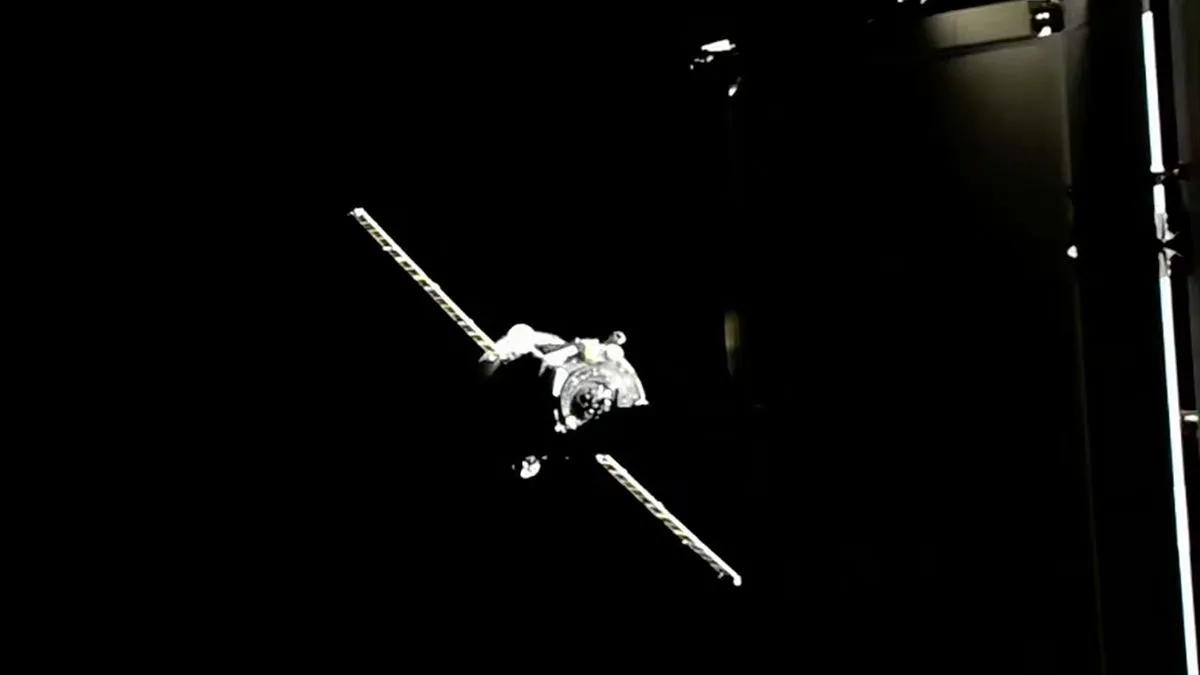
A significant delivery of food, fuel, and supplies has successfully reached the International Space Station (ISS) thanks to a Russian supply ship. The Progress MS-30 spacecraft, also known as Progress 91 by NASA, autonomously docked to the aft port of the ISS's Zvezda service module on Saturday, March 1. This event occurred as the two vehicles orbited approximately 260 miles (418 kilometers) above the South Atlantic Ocean.
The docking took place at 6:02 p.m. EST (2302 GMT), just two days after the Progress MS-30 launched from the Baikonur Cosmodrome in Kazakhstan. This uncrewed cargo spacecraft is carrying around three tons (5,730 pounds or 2,599 kilograms) of essential supplies for the ISS's Expedition 72 crew.
The cargo delivered by Progress MS-30 includes a variety of crucial items such as clothing, food, and medical and sanitary supplies. Notably, the spacecraft is equipped with a new Orlan-MKS spacesuit designated for use during upcoming Russian spacewalks. Additionally, the Progress is carrying essential equipment and hardware to support various Roscosmos science experiments.
Among the scientific materials included are resources for cultivating micro-algae as a potential food source. The crew will also have tools necessary to test the impact of microorganisms on different surfaces within the orbiting laboratory. Furthermore, the shipment contains equipment designed to create advanced semiconductor crystals.
The ISS cosmonauts, including Aleksey Ovchinin, Ivan Vagner, and Alexander Grebenkin, will also receive biomedical tools aimed at assessing the effects of microgravity on blood circulation and immunity. This aspect of the shipment is crucial for understanding how long-term space travel affects human health.
In addition to scientific and medical supplies, the Progress MS-30 has delivered a substantial amount of resources to replenish the ISS's systems. This includes 2,094 pounds (950 kilograms) of fuel, 926 pounds (420 kilograms) of drinking water, and 110 pounds (50 kilograms) of nitrogen to ensure a stable atmosphere onboard the station.
The arrival of the Progress MS-30 not only enhances the living conditions for the Expedition 72 crew but also supports ongoing scientific research aboard the ISS. As space exploration continues to advance, such supply missions play a critical role in sustaining human presence in orbit and facilitating groundbreaking research.